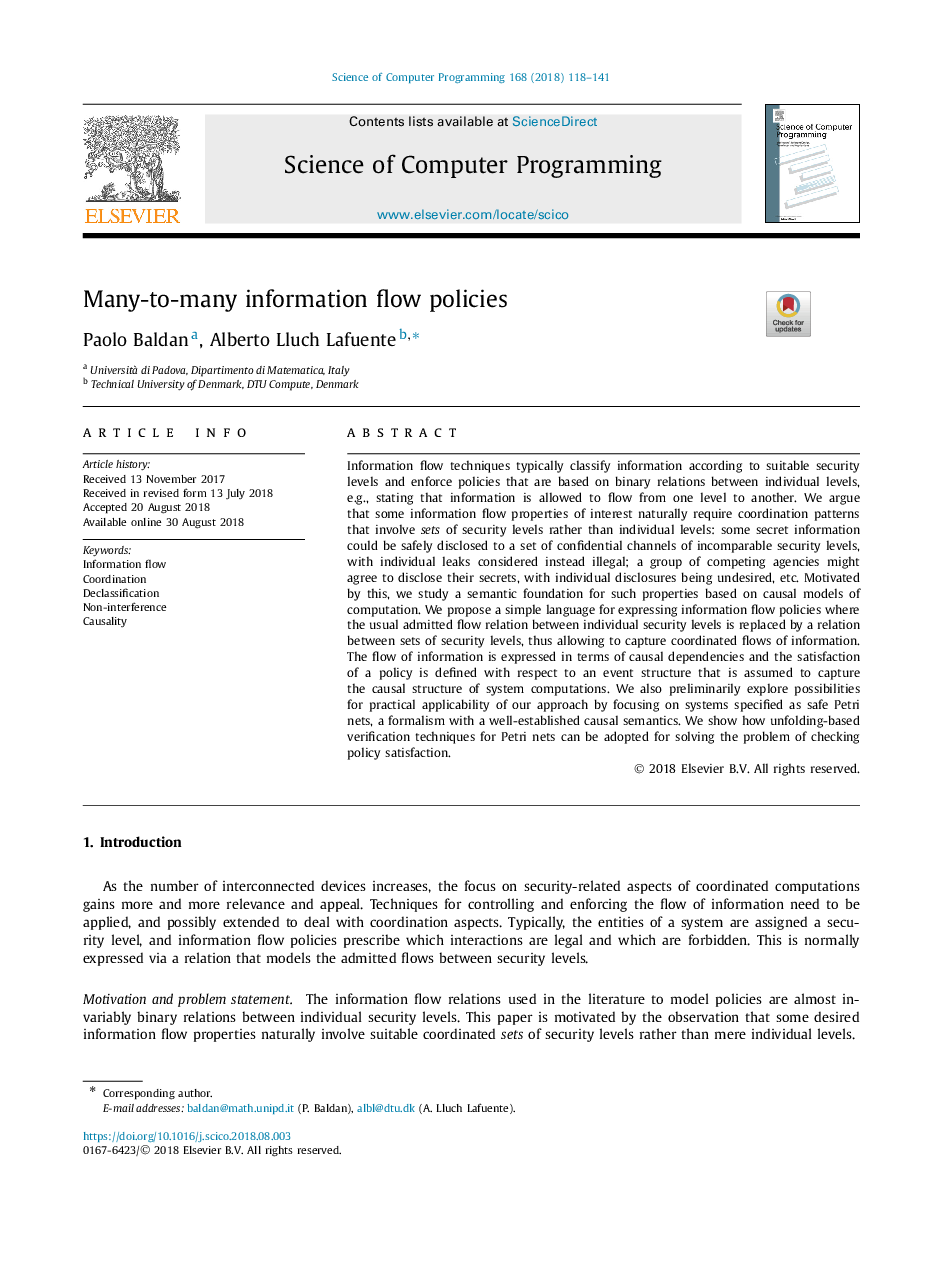| Article ID | Journal | Published Year | Pages | File Type |
|---|---|---|---|---|
| 10145992 | Science of Computer Programming | 2018 | 24 Pages |
Abstract
Information flow techniques typically classify information according to suitable security levels and enforce policies that are based on binary relations between individual levels, e.g., stating that information is allowed to flow from one level to another. We argue that some information flow properties of interest naturally require coordination patterns that involve sets of security levels rather than individual levels: some secret information could be safely disclosed to a set of confidential channels of incomparable security levels, with individual leaks considered instead illegal; a group of competing agencies might agree to disclose their secrets, with individual disclosures being undesired, etc. Motivated by this, we study a semantic foundation for such properties based on causal models of computation. We propose a simple language for expressing information flow policies where the usual admitted flow relation between individual security levels is replaced by a relation between sets of security levels, thus allowing to capture coordinated flows of information. The flow of information is expressed in terms of causal dependencies and the satisfaction of a policy is defined with respect to an event structure that is assumed to capture the causal structure of system computations. We also preliminarily explore possibilities for practical applicability of our approach by focusing on systems specified as safe Petri nets, a formalism with a well-established causal semantics. We show how unfolding-based verification techniques for Petri nets can be adopted for solving the problem of checking policy satisfaction.
Related Topics
Physical Sciences and Engineering
Computer Science
Computational Theory and Mathematics
Authors
Paolo Baldan, Alberto Lluch Lafuente,
